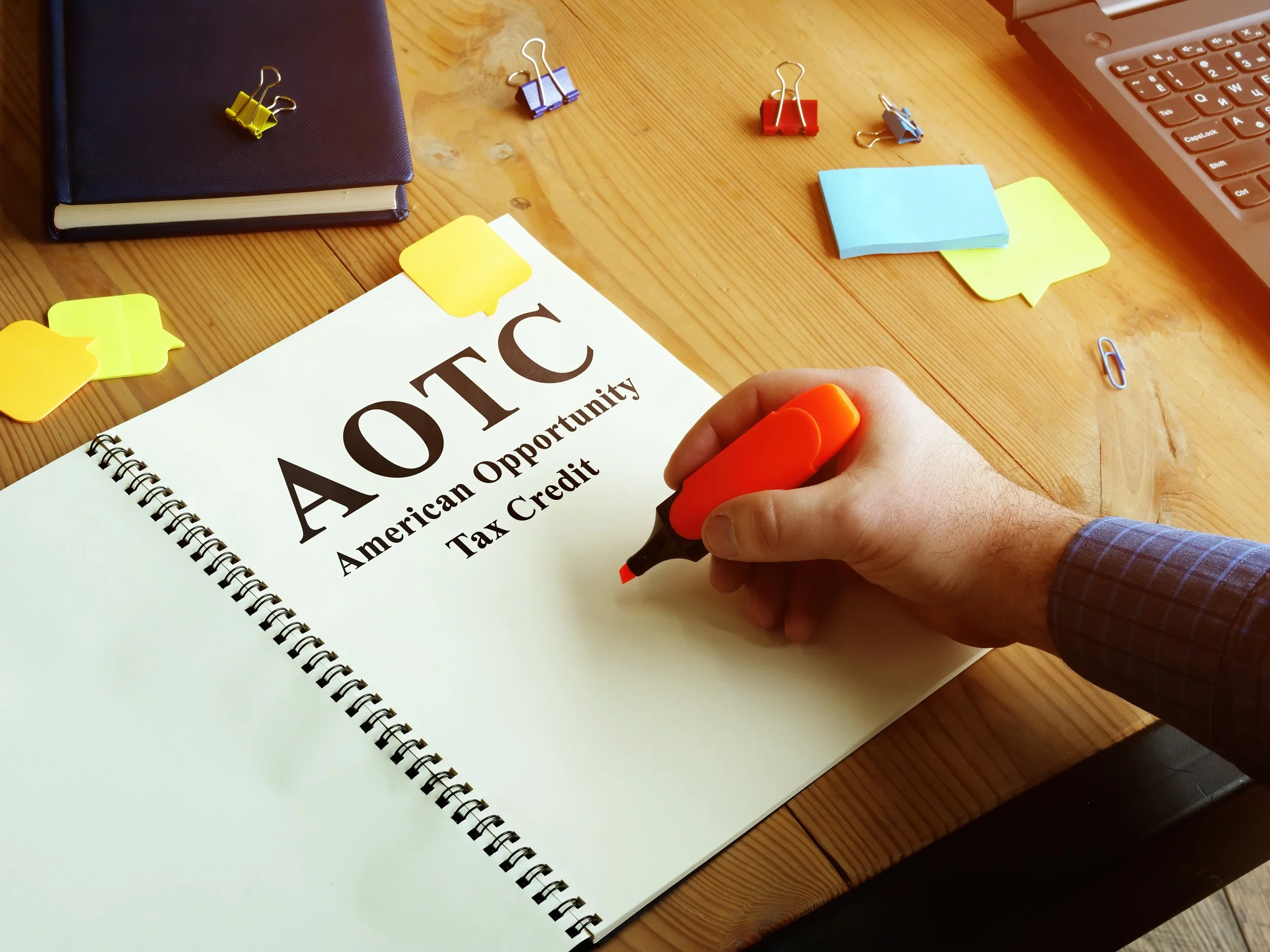Who Is Eligible for the American Opportunity Tax Credit (AOTC)?
AOTC | Taxes | Credit | October 9, 2024
This Week's Quote:
"Strength shows not only in the ability to persist but in the ability to start over."
- F. Scott Fitzgerald
Education is a powerful tool that can open doors to countless opportunities. However, pursuing higher education often comes with a hefty price tag. To alleviate the financial burden of college expenses, the American government offers various tax incentives, including the American Opportunity Tax Credit (AOTC).
The AOTC provides eligible taxpayers with a valuable tax break to help cover higher education costs. This blog will explore who is eligible for the AOTC and how it can benefit students and their families.
What is the American Opportunity Tax Credit (AOTC)?
The American Opportunity Tax Credit, often referred to as AOTC is a tax credit provided by the U.S. government to assist eligible taxpayers in paying for qualified higher education expenses. It was introduced as part of the American Recovery and Reinvestment Act of 2009 and has since been extended multiple times. The credit aims to make higher education more affordable for students and their families.
Eligibility Criteria:
Enrollment in an Eligible Educational Institution:
You or your dependent must be enrolled at least half-time in a degree or certificate program at an eligible post-secondary educational institution. This can include colleges, universities, vocational schools, and other accredited institutions.Pursuing an Undergraduate Degree:
The AOTC is only available for the first four years of undergraduate education. If you or your dependent is pursuing a graduate or professional degree, you are not eligible for this credit.Citizenship or Residency:
You must be a U.S. citizen or eligible non-citizen to claim the AOTC.No Felony Drug Convictions:
You cannot claim the AOTC if convicted of a felony drug offense.Modified Adjusted Gross Income (MAGI) Limits:
Your MAGI must fall within certain income limits to be eligible for the AOTC. As of my last knowledge update in January 2022, the phase-out range for the AOTC was $80,000 to $90,000 for single filers and $160,000 to $180,000 for married couples filing jointly. These income limits may be subject to change, so it's crucial to check the most recent IRS guidelines.Qualified Educational Expenses:
You can claim the AOTC for qualified education expenses, typically including tuition, fees, and course materials required for enrollment. However, expenses like room and board, transportation, and non-academic fees are not eligible.
Benefits of the AOTC:
The American Opportunity Tax Credit offers several advantages to eligible taxpayers:
Tax Reduction:
The AOTC provides a tax credit of up to $2,500 per eligible student. This credit directly reduces your tax liability, making it more affordable to pay for education expenses.Partial Refundable:
If the AOTC reduces your tax liability to zero, you may be eligible for a refund of up to 40% of the remaining credit, up to $1,000.Covers Course Materials:
Unlike other education-related tax benefits, the AOTC also covers course materials and textbook expenses, not just tuition and fees.Helps Middle-Income Families:
The income phase-out limits are designed to help middle-income families afford higher education.
The American Opportunity Tax Credit (AOTC) is a valuable tax incentive that can significantly reduce the financial burden of higher education for eligible taxpayers and their families. To ensure you qualify and make the most of this credit, staying updated with the latest IRS guidelines and requirements is essential.
If you meet the criteria outlined in this blog, you can take advantage of the AOTC to make pursuing a college degree more affordable and accessible.
Credit goes to the dedicated team of editors and writers at Newsletter Station, published August 14, 2024 in the Balance Sheet Bulletin.
Thank you for all of your questions, comments and suggestions for future topics. As always, they are much appreciated. We also welcome and appreciate anyone who wishes to write a Tax Tip of the Week for our consideration. We may be reached in our Dayton office at 937-436-3133 or in our Xenia office at 937-372-3504. Or, visit our website.
This week’s Author, Belinda Stickle

